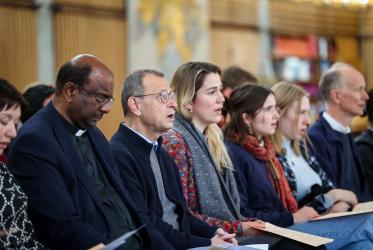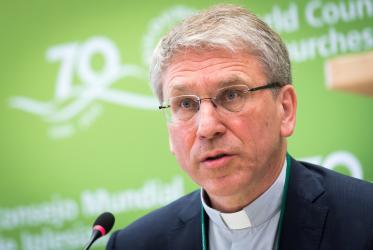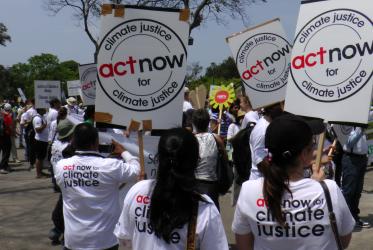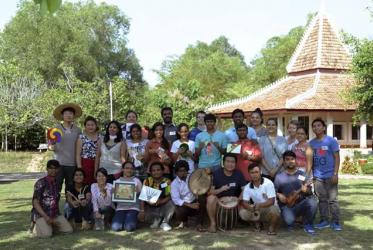Displaying 1 - 20 of 21
Christ’s Love (Re)moves Borders – GETI 2022 in images
13 September 2022
Ecumenical conference features theological reflections on ecology
16 February 2021
New student body at Bossey Ecumenical Institute “a source of joy”
14 September 2020
Churches should use their voice on climate change
26 February 2020
Youth gather in Basel for Taizé pilgrimage
15 January 2018
“Overcoming economic injustice” vision of WCC’s Athena Peralta
23 February 2017
WCC/UN conference calls for coordinated action on refugee crisis
20 January 2016
Faith leaders urge action at UN climate talks
02 December 2015
UN Climate summit results vital for world’s future
26 November 2015
New departure in Taizé towards an ecumenism of solidarity
20 August 2015
Churches' “prophetic voice” will be busy in 2015
18 June 2015
Asian youth call for justice and peace
13 September 2013













